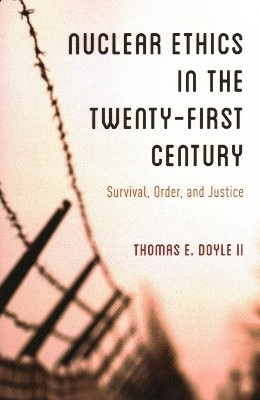Nuclear Ethics in the Twenty-First Century(English, Paperback, Doyle, II Thomas E.)
Quick Overview
Product Price Comparison
This book relates a complex ethical (re)assessment of the continued reliance by some states on nuclear weapons as instruments of state power. This (re)assessment is more urgent considering the relatively recent intensification of great power conflict dynamics and the nuclear-weapon states' recommitments to modernizing, augmenting, or tailoring their nuclear forces to address vital state and alliance interests. And, especially since the beginning of the administration of U.S. President Donald J. Trump, these recommitments have accelerated the degree to which the political and moral dilemmas of (the threat of) nuclear use define and intensify existential risks for specific states and the international community at large. To execute this (re)assessment, this book details how strategic, political, legal, and moral reasoning are deeply intertwined on the questions of vital state and global values. Its ontological assumptions are taken from a broadly construed IR Constructivist stance, and its epistemological approach applies non-ideal moral principles informed by Kantian thought to selected problems of nuclear-armed security competition as they evolved since President Barack Obama's 2009 Prague Declaration. This non-ideal moral approach employed is committed to the view that the dual imperatives of humanity's survival and the common security of states requires an international order which privileges considerations of justice over power-political considerations. This non-ideal moral approach is a necessary element of theorizing a set of practices to effectively address the challenges and dilemmas of reordering international politics in terms of justice.


